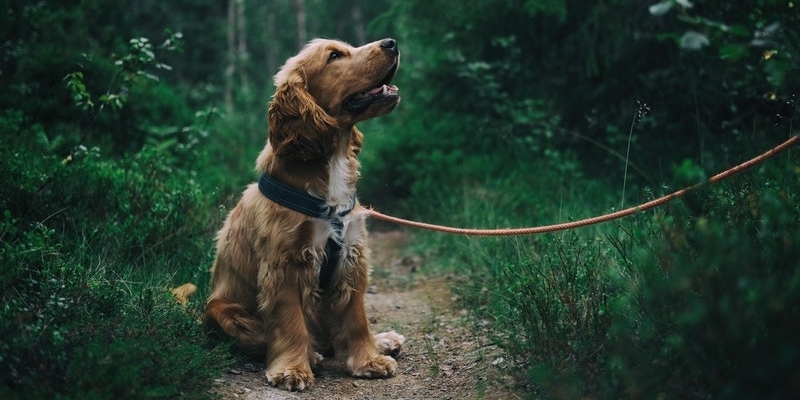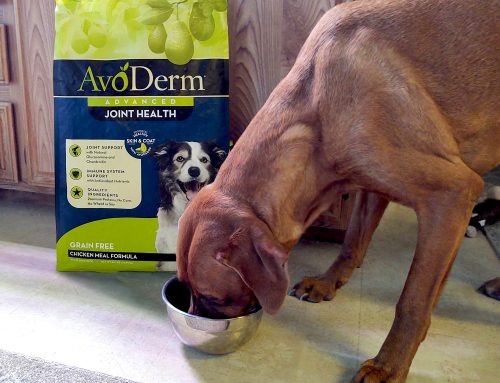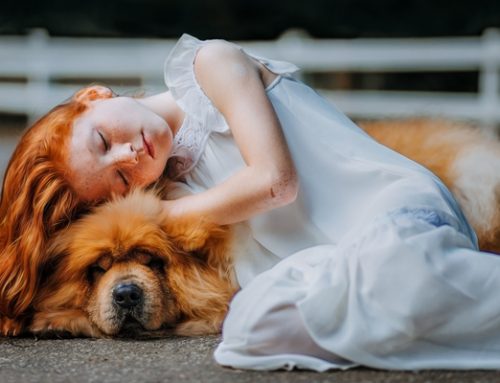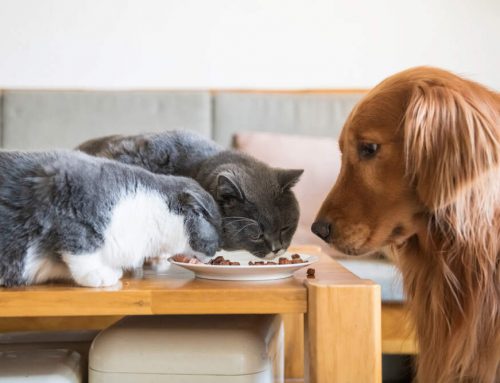Your first vet visit as a new pet owner can be a stressful event. It doesn’t have to be, though, with the right preparation. Coming with the right questions can turn this unnerving experience a success. Here are some recommendations for preparing your pet for their first vet visit, as well as some sample questions for both dog and cat owners.
Preparing Your Cat For Their First Vet Visit
When getting ready for your cat’s first vet visit, it’s important to create a calm and stress-free environment for your kitty. There are several different signs of nervous behavior in cats, so be sure to understand them so you can help ease them.
A cat’s first stress trigger can be their crate, which you will have to transport them in. It’s important to make their crate a calming and stress-free zone since this will be the first step towards a vet visit. To create a calm and worry-free crate environment, don’t try to force your cat in. Try filling their crate with a blanket or t-shirt with your scent as well as various treats and toys.¹ Then once they enter their crate on their own accord, compliment and award this positive behavior.
During the travel, maintain positive and relaxing communication with your cat. Give them treats, pets, and affection to the best of your ability throughout the drive. This will reinforce a comfortable space with your cat as well as keep them happy on their way to the vet.
Once at the vet waiting area, check up on your cat. If they seem anxious, calm them with positive communication and treats. If the cat becomes aggressive, you can always stay in the car with them until the vet is ready, keeping them cool with playing and treats. Cats are very perceptive pets, so it’s vital that you stay as relaxed as possible to reinforce a stress-free environment for your kitty.
Preparing Your Dog For Their First Vet Visit
When preparing your pup for the vet, it’s important to appease them with plenty of positive reinforcement and help them understand what they will be getting into.
Start preparing your dog for the vet by petting areas where the vet will be touching, such as the ears, mouth, paws, and tail.² This will help them understand and get used to the vet’s methods of examination. Be sure to reward their positive behavior with praise and treats to help them remain stress-free.
Then, once in the car, it’s important to continue the gentle petting and treats to keep your dog at ease. Most dogs find car rides very relaxing so this is a great environment to build joy and harmony.
Once in the waiting area, it’s important to know your dog’s social behavior. If your dog arrives at the vet already nervous, they could react in an aggressive manner that is abnormal for your pup. If they do become aggressive, you can always wait in the car and have your vet contact you once they are ready for your dog. Above all else, dogs are very perceptive so it’s important for you to stay composed as well. This will assure your dog that everything is okay.
Dog and Cat Questions to Ask the Vet
For your first vet visit, it’s important to have questions prepared to ask before the big day. Not only is this extremely helpful to you and your pup but it will give you the most out of your visit. Vets are very busy and have several patients so they won’t always have the answers you anticipate. Don’t be afraid to write these questions down, as your vet is a valuable resource to your pet’s health and to your peace of mind. Here are some helpful questions to prepare:
- Is my pet a healthy weight?
- Are they eating the right food and getting proper nutrition?
- Are they sleeping too much or too little?
- What resources are available at this vet clinic? (ex. X-rays, labs, etc.)
- Are there any common parasites or pests in the area? How can I prevent them?
- Is pet insurance worth it and if so, who do you recommend?
- Do you have any grooming recommendations for my cat or dog?
- Are there any vaccinations my pet needs?
- Where are the nearby emergency services for off-hours or holidays?
- What do you recommend for flea and tick prevention?
- Is spaying/neutering right for my pet?
- How is my pet’s dental health?
- Any pet food label questions such as how to read them, what to look for, etc.
The first vet visit is a pivotal experience for new pets and owners. It’s important to be prepared in advance and to create a cool and relaxing situation for you and your pet. Hopefully, these questions and tips help you and your dog or cat make the most of your first vet visit.
SOURCES
- Cross, Laura. “7 Tips to Make Vet Visits Less Stressful for Your Cat.” Vetstreet, 22 Aug. 2016.
- “Preparing Your Dog for the Vet | Animal Behavior College Blog.” ABC Vet Assistant Program | Animal Behavior College, 22 Dec. 2017.





